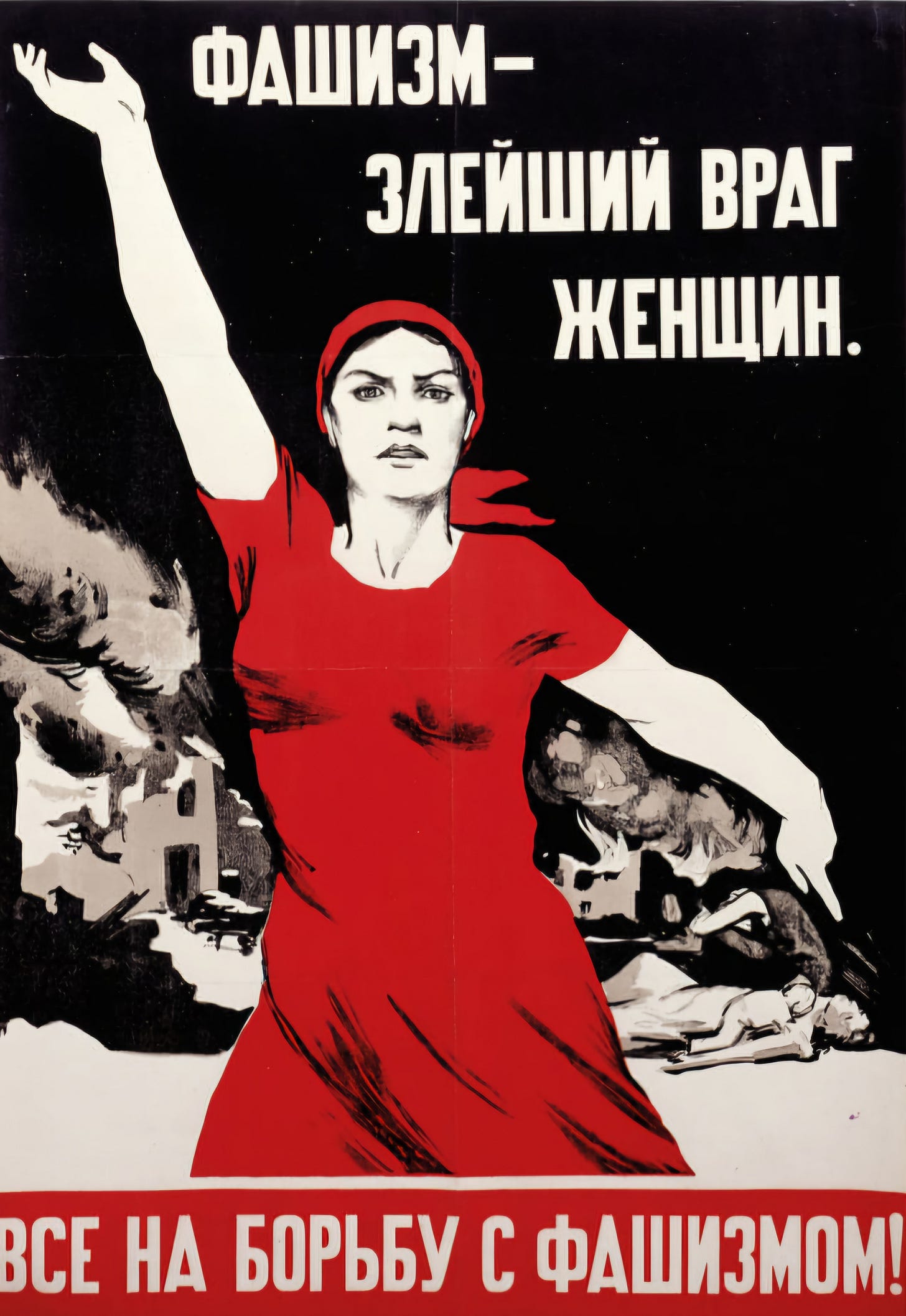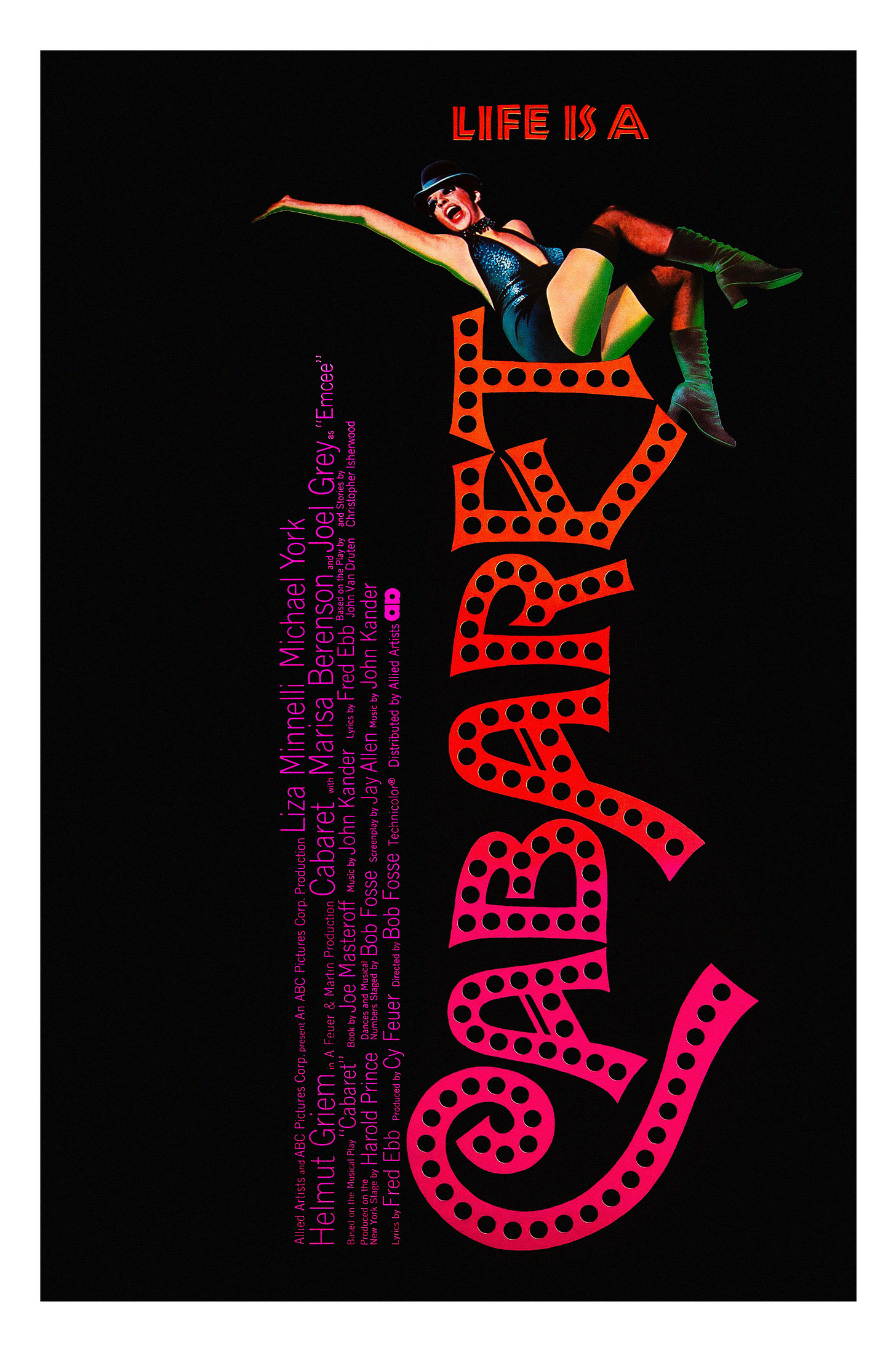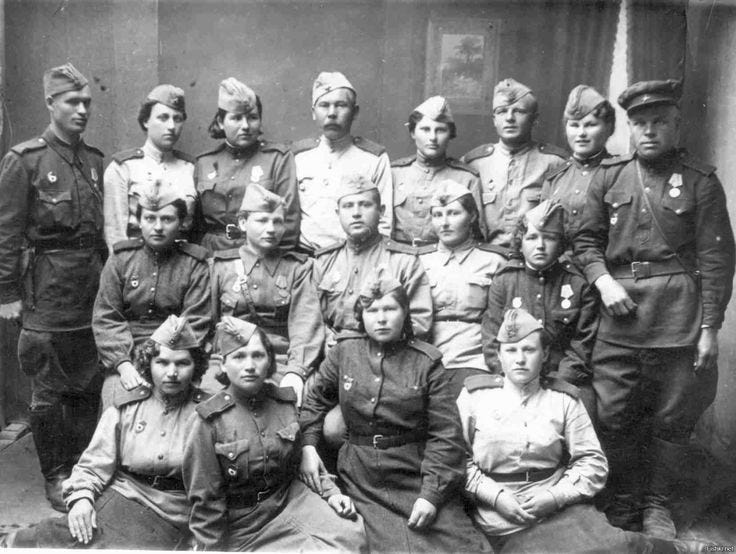Nina Vatolina’s 1941 poster “Fascism, the most evil enemy of women.”
This propaganda poster motivated Soviets to fight for the motherland and condemned the German invasion.
I recently rewatched the 1972 film Cabaret since the rise of fascism has been on my mind. Its a good representation of the national socialist movement in 1930s Berlin. As the film begins, the Kit Kat Club owner kicks a uniformed Nazi out of the club, but by the end of the movie, the Nazi anthem “Tomorrow Belongs to Me” echoes in your memory as uniformed men fill the club. The film accurately shows the growing antisemitism, eventual persecution of the Berlin queer community, and gradual acceptance of Nazi ideology as the film progresses. Cabaret has been studied by much smarter people than me, but in my eyes, it illustrates the importance and power of art as critiques of society, and entryways into historical context and analysis.
Limiting what history is taught in schools and museums, mandating that America 250 commemoration efforts must be positive, and dismissing the Archivist of the United States very clearly is to control the historical record and narrative. Its horrifying and we’ve seen it before with several dictatorial regimes throughout history. Hitler, Mussolini, Franco, Stalin, all with varying ideologies, but achieving totalitarian governments through these means.
As a WWII historian, I’m most familiar with Germany’s embrace of national socialism within fascism, so those are the parallels I see most clearly. Is it hyperbolic to compare the United States now to pre-WWII Germany? Probably. But the warning signs are there and the rise of fascism is happening in America. The things we’re seeing from the Trump administration: censoring museums, restricting aid and funding, website edits and book bans, government purges, immigration freezes and mass xenophobia, targeting LGBTQ+ people, are all a very deliberate power grab from the extremism that represents a small percentage of the American public. But as these actions continue, as seen in Cabaret, they permeate our patriarchal society, leading to the broader acceptance of previously condemned ideas.
I’m tired, and I’m concerned that history is doomed to repeat the actions of World War II. I don’t want to catastrophize, but I also want us to be prepared. Despite the exhaustion I feel, we must remain vigilant, stand up for our neighbors, and push back against these governmental overreaches. Many historians are writing and using their expertise in these challenging times, and I wanted to contribute my ten cents.
Learning from history is vital in this fight.






